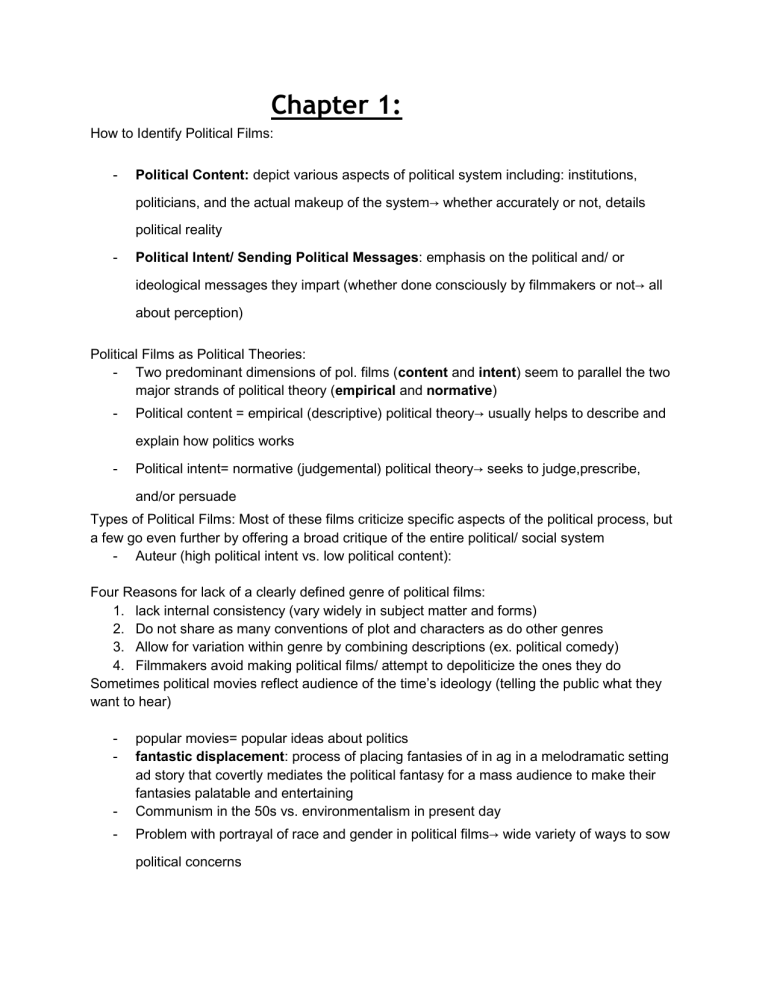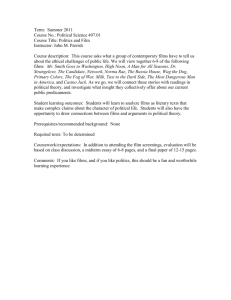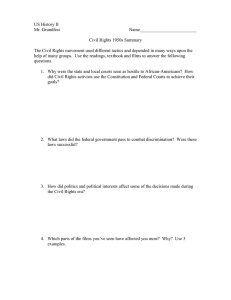
Chapter 1: How to Identify Political Films: - Political Content: depict various aspects of political system including: institutions, politicians, and the actual makeup of the system→ whether accurately or not, details political reality - Political Intent/ Sending Political Messages: emphasis on the political and/ or ideological messages they impart (whether done consciously by filmmakers or not→ all about perception) Political Films as Political Theories: - Two predominant dimensions of pol. films (content and intent) seem to parallel the two major strands of political theory (empirical and normative) - Political content = empirical (descriptive) political theory→ usually helps to describe and explain how politics works - Political intent= normative (judgemental) political theory→ seeks to judge,prescribe, and/or persuade Types of Political Films: Most of these films criticize specific aspects of the political process, but a few go even further by offering a broad critique of the entire political/ social system - Auteur (high political intent vs. low political content): Four Reasons for lack of a clearly defined genre of political films: 1. lack internal consistency (vary widely in subject matter and forms) 2. Do not share as many conventions of plot and characters as do other genres 3. Allow for variation within genre by combining descriptions (ex. political comedy) 4. Filmmakers avoid making political films/ attempt to depoliticize the ones they do Sometimes political movies reflect audience of the time’s ideology (telling the public what they want to hear) - - popular movies= popular ideas about politics fantastic displacement: process of placing fantasies of in ag in a melodramatic setting ad story that covertly mediates the political fantasy for a mass audience to make their fantasies palatable and entertaining Communism in the 50s vs. environmentalism in present day - Problem with portrayal of race and gender in political films→ wide variety of ways to sow political concerns Types of Political Message: - Movies shape , reflect, and and reinforce our opinions - American movies avoid, ignore, oversimplify, or denigrate complicated political ideology The Impact of Political Films: - contribute to general social and political learning, including affective patterns→ part of a larger political socialization process (ex. support for opposition to the role of gov’t) - provide information about specific issues or events (ex. Food Inc.) - affect specific political behavior→ voting for a certain candidate by changing public opinion - affect the knowledge and behavior of specific groups→ especially political elites - spark public debate and media interest in specific issues Chapter 2: The Filmmaking Process: 1. Conception: idea of making a film - smaller films= intentional political messages vs. big budget, big studio films 2. Production: different aspects and tasks -





